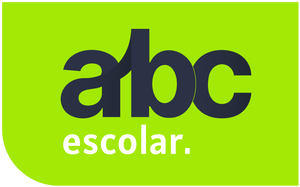What is Auditory Processing Disorder?
![]()
Auditory Processing Disorder is a dysfunction in the neural processing of auditory stimuli, which interferes with the ability to correctly recognize and interpret sounds. In other words, people with this disorder can detect or hear sounds normally, but are unable to understand them and, therefore, decode the sound information received.
In fact, PPA is characterized by the inability to process auditory information adequately and to attribute meaning to that information. This disorder affects auditory activities, namely sound localization and laterality; auditory discrimination; recognition of auditory patterns and the perception of temporal aspects.

Auditory Processing Disorder may also appear associated with other disorders or difficulties: Specific Learning Disorder in Reading (Dyslexia) and Writing (Dysorthographia), Hyperactivity and/or Attention Deficit Disorder, Phonological Disorders (with repercussions on speech), Dysphonia (change in voice), among others.
Learn about the causes and symptoms associated with PPA
The causes of Auditory Processing Disorder are varied and the most common are:

PPA can be related to a large number of behavioral manifestations and a variety of symptoms. These symptoms often produce daily difficulties in the process of oral communication, reading and writing, including school performance and language comprehension. Some of the symptoms are also often confused with learning problems, attention deficit, dyslexia, but also with personality traits of the child.

In addition to the difficulties listed above, it is important to note that children with PPA frequently swap the letters l in speech and also in writing, with the letters b, d, p and q being inverted, as well as letters with similar sounds, such as p/b, t/d, f/v, m/n. The child also feels the need for the interlocutor to constantly repeat or better explain the message they want to convey, especially when they are in noisy environments. These environments cause great discomfort to the child, leading them to become distracted very easily, to feel tired or agitated.
The importance of early diagnosis

It is extremely important that the diagnosis is made as early as possible, so that the child's academic performance is not compromised. In childhood, children have great neural plasticity, which allows them to respond positively to intervention strategies by a multidisciplinary team. In this multidisciplinary team, in addition to the work carried out by therapists and other specialists, parents, the school and teachers also play a leading role in developing these strategies.
Strategies should include training and stimulating auditory skills, but also speech/language, writing and memory.
School: learn some strategies for working with children with AHL

To work with children with ALD in the classroom context, we suggest the following strategies to the teacher:

Toobaloo: a valuable resource for children with AHL
Toobaloo is a pedagogical and educational tool designed to help children with reading and speaking difficulties. This tool works like a telephone, amplifying the voice to provide instant auditory feedback. Auditory feedback is the task of the person listening to the sound of their own voice while speaking.
Toobaloo helps children with specific needs, such as auditory processing disorders, autism, stuttering and dyslexia. It helps them read fluently, pronounce words more clearly, speak articulately and understand what they read and say.
Discover some of the main advantages that this educational tool can bring to children with PPA, in the articles “ Toobaloo – The tool that helps develop speech and reading ” and “ Toobaloo: main advantages in reading, speech and language ”.



